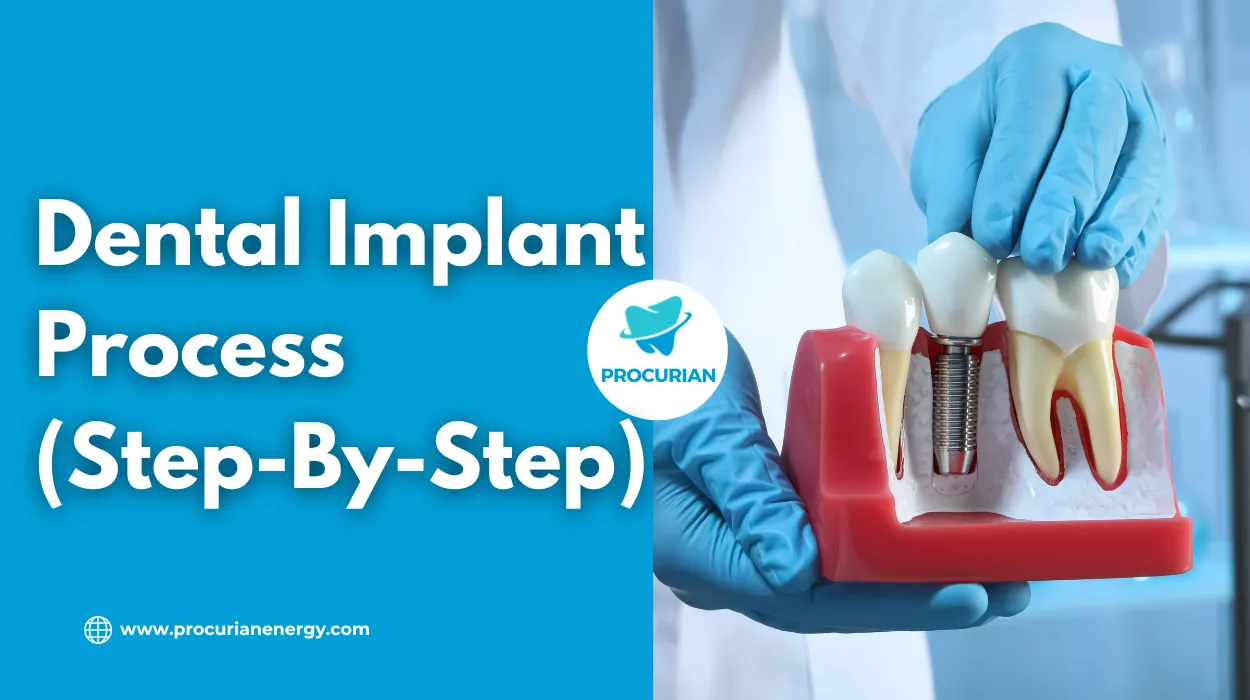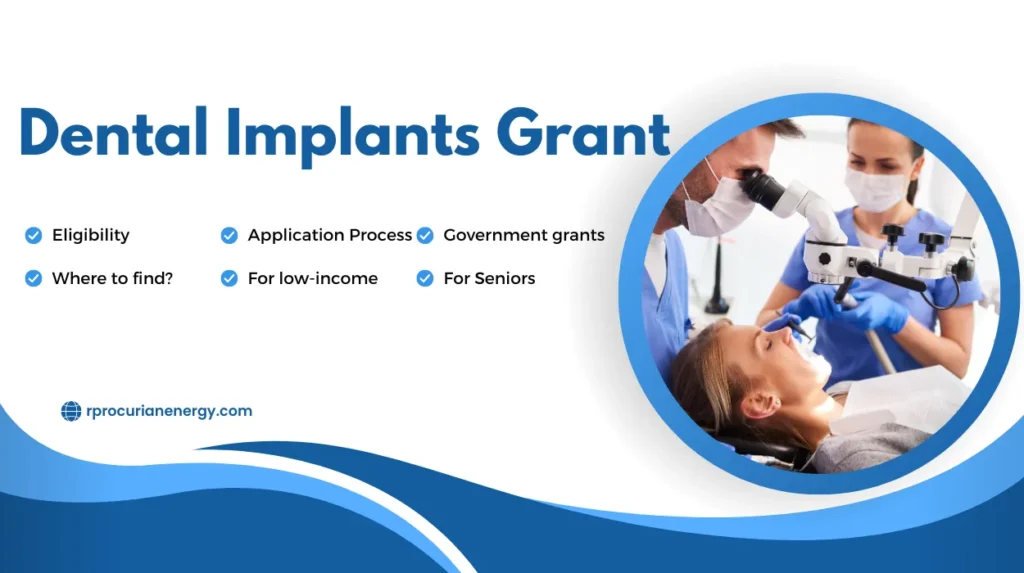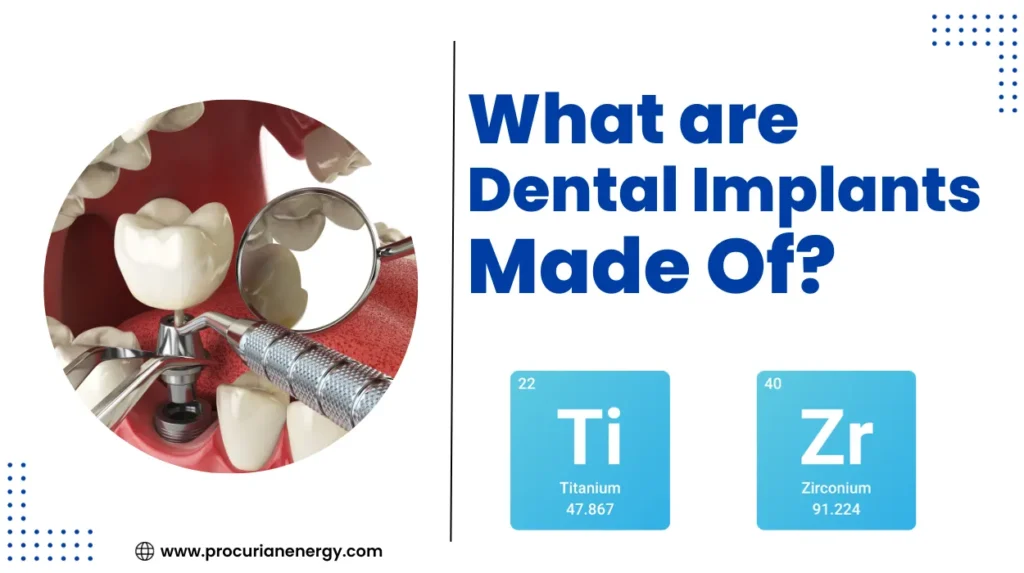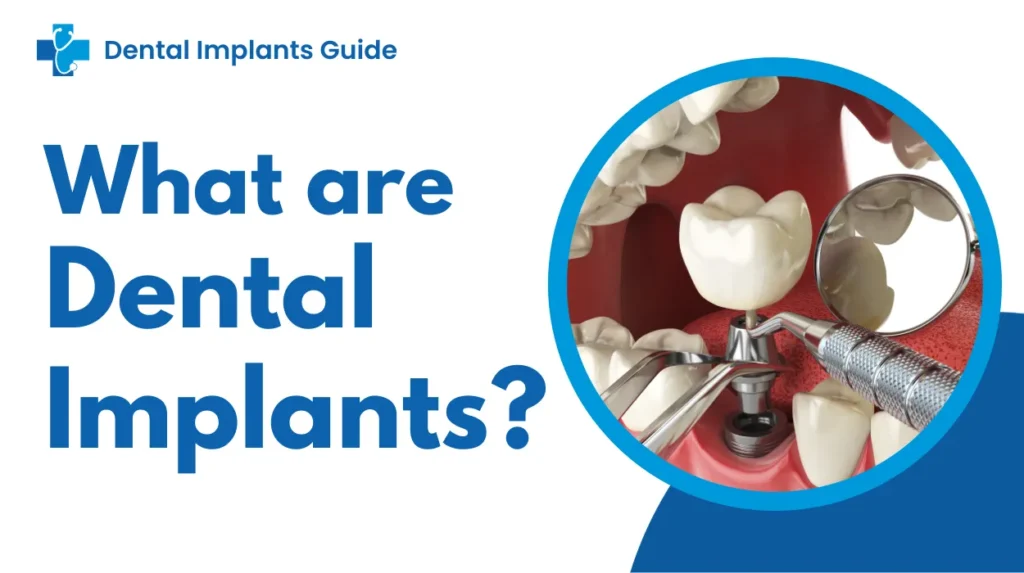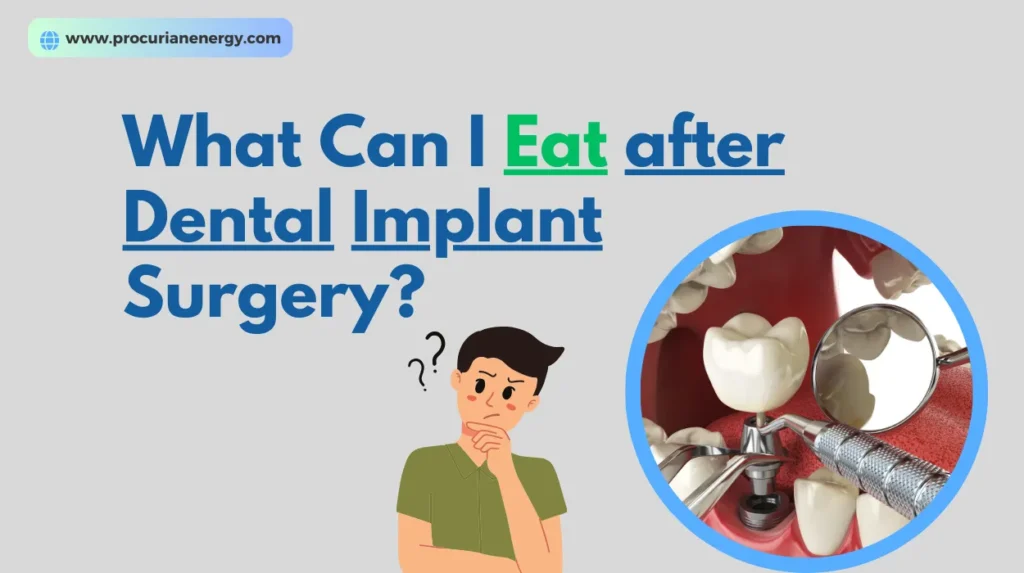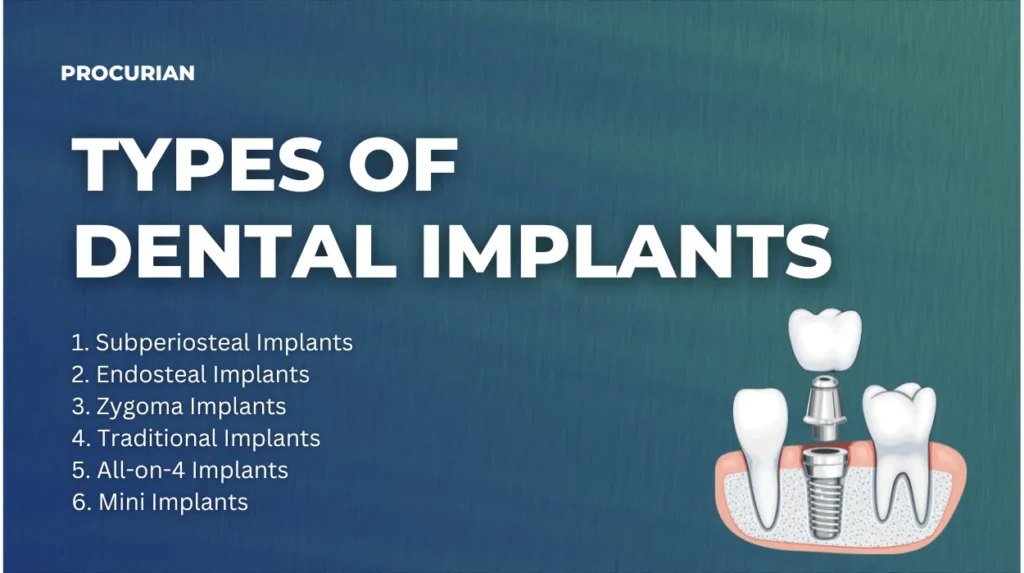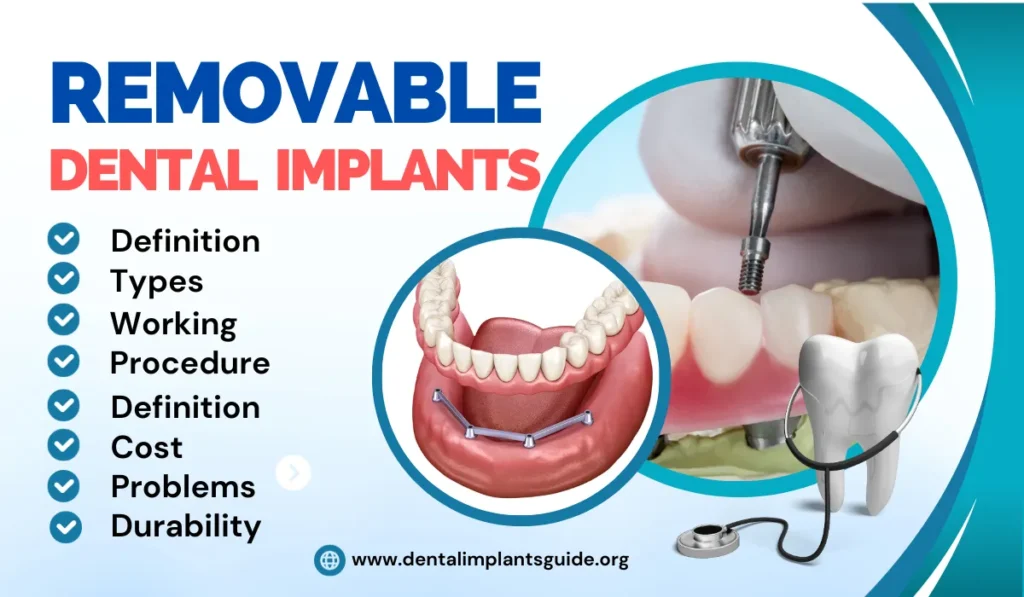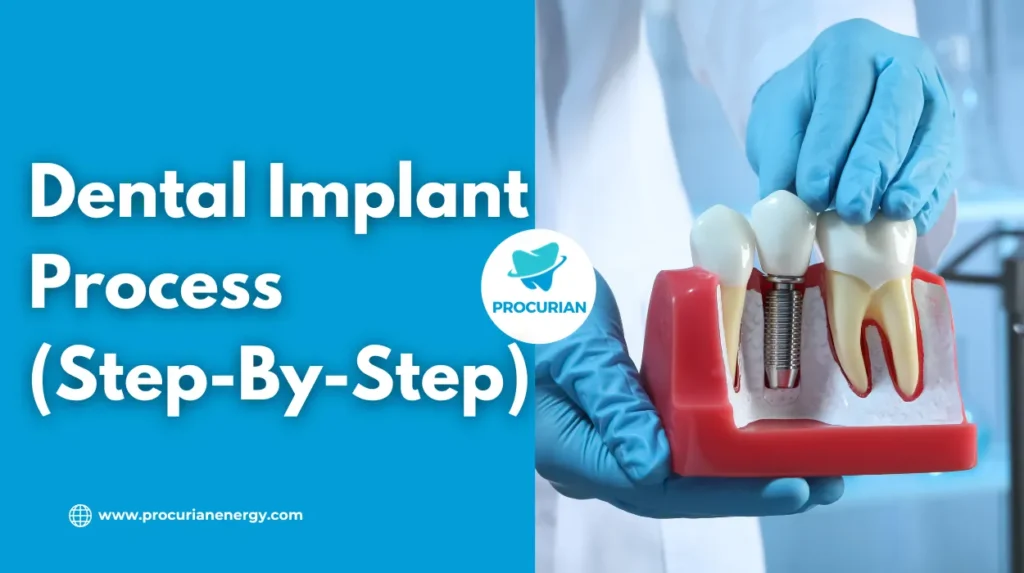
Are you considering dental implants but feeling a bit overwhelmed by the process? ‘
Don’t be concerned, I’ll help you through it as simply as I can. I’ve worked in the dental field for more than 20 years and have witnessed countless patients go through the dental implant process.
We’ll go through each dental implant process step by step, from start to finish, so you know exactly what to expect.
What Are Dental Implants?
Dental implants are artificial tooth roots made of biocompatible materials like titanium. They are surgically placed into your jawbone to support replacement teeth, such as crowns, bridges, or dentures.
Why Choose Dental Implants?
Before diving into the step-by-step process, let’s quickly understand why dental implants are a fantastic choice:
1) Natural Appearance – Dental implants look and feel just like your natural teeth, ensuring a beautiful and confident smile.
2) Durability – With proper care, dental implants can last a lifetime, making them a cost-effective choice in the long run.
Also see: 5 Cheapest Place To Get All-on-4 Dental Implants.
3) Improved Functionality – Implants allow you to eat, speak, and chew comfortably, as if you never lost a tooth.
4) Preserve Jawbone – Unlike other tooth replacement options, dental implants stimulate the jawbone, preventing bone loss.
5) No Cavities – Implants can’t get cavities, so you’ll still need to care for your gums and surrounding teeth but not worry about your implant itself.
Now, let’s go through the dental implant process, step by step, to ease any concerns you may have.
Step 1: Consultation and Evaluation
Duration: 1-2 weeks
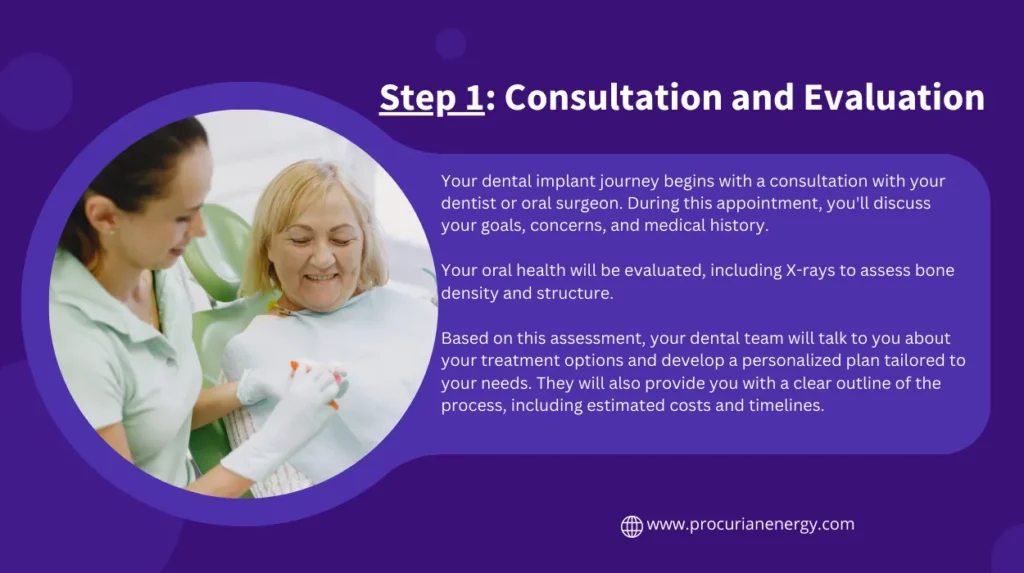
The journey begins with a visit to your dentist or oral surgeon. This is a crucial step where your oral health is assessed, and the feasibility of dental implants is determined. Here’s what happens:
1.1 Oral Examination
Your dentist will thoroughly examine your mouth, teeth, and gums. X-rays or 3D scans may be taken to assess the bone density and shape of your jaw.
1.2 Medical History
Your medical background and any medications you are currently taking will be discussed.. It’s vital to inform your dentist about any chronic conditions or allergies.
1.3 Treatment Plan
Your dentist will create a personalized treatment plan based on the evaluation. The number of implants required and the timing of the procedure are specified in this plan.
Step 2: Tooth Extraction (if necessary)
Duration: 20-40 minutes
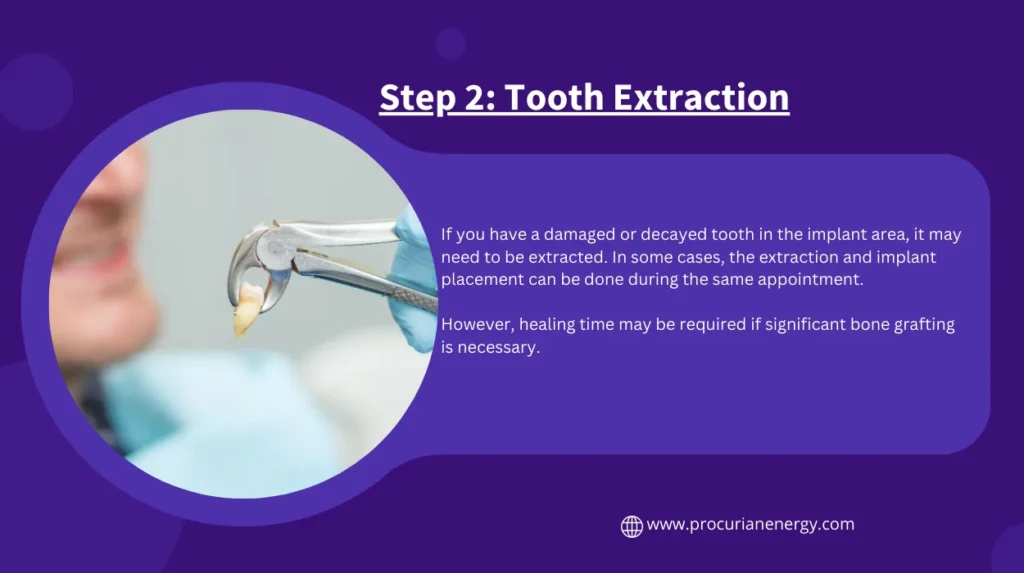
If you have a damaged or decayed tooth in the implant area, it may need to be extracted. In some cases, the extraction and implant placement can be done during the same appointment. However, healing time may be required if significant bone grafting is necessary.
Step 3: Implant Placement
Duration: 1-2 hours per implant
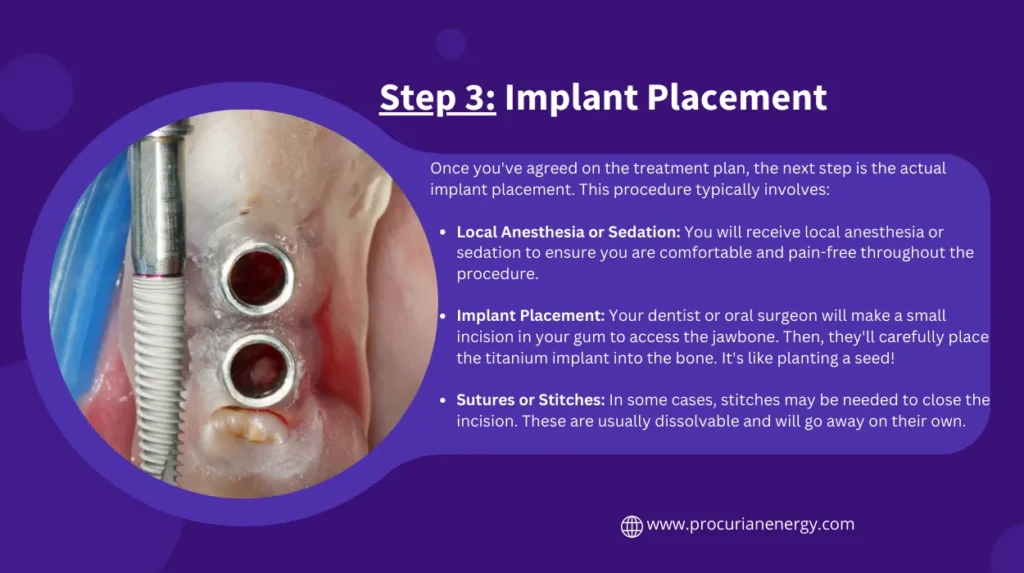
Now comes the exciting part – the implant placement.
During this surgery, your dentist or oral surgeon will place the titanium implant into your jawbone. You may be given local anesthesia or sedation to ensure you’re pain-free and relaxed.
Step 4: Healing and Osseointegration
Duration: 4-6 months
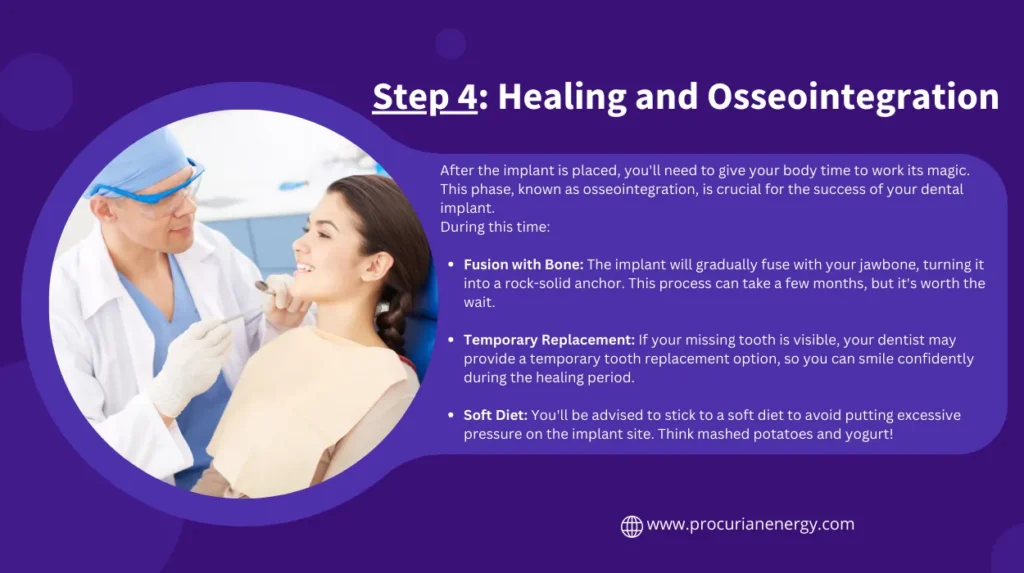
Now comes the waiting game. The implant needs time to bond with your jawbone in a process called osseointegration. During this period:
- You’ll follow a soft diet to avoid putting too much pressure on the implant.
- Your dentist will monitor your progress with periodic check-ups.
- Once osseointegration is complete, you’re ready for the next step.
Step 5: Abutment Placement
Duration: 30-60 minutes
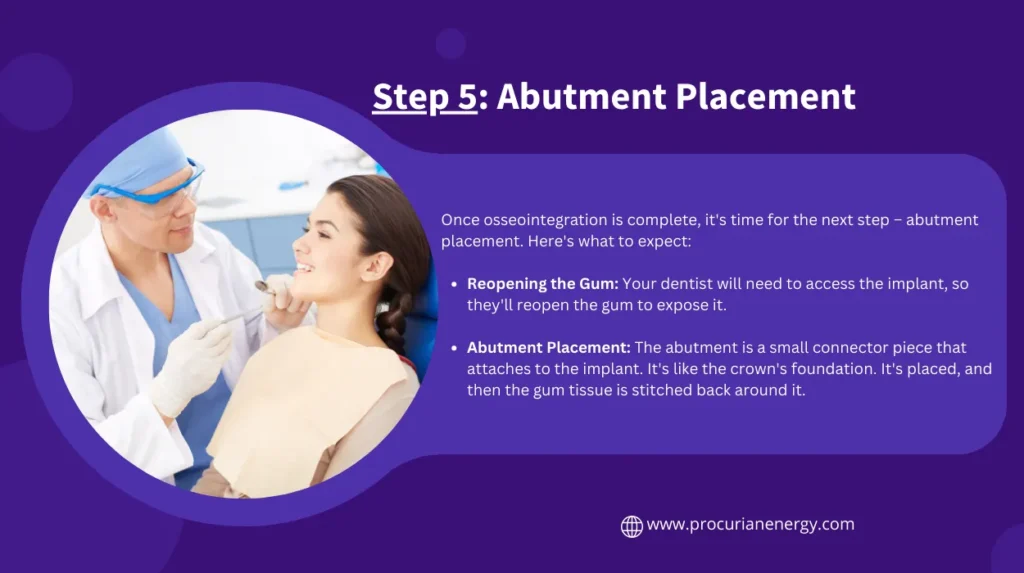
The abutment is like the connector between the implant and the crown. Here’s what happens:
- Your dentist will make a small incision to expose the implant.
- The abutment is attached to the implant.
- Your gum is stitched up around the abutment.
Step 6: Crown Placement
Duration: 1-2 hours
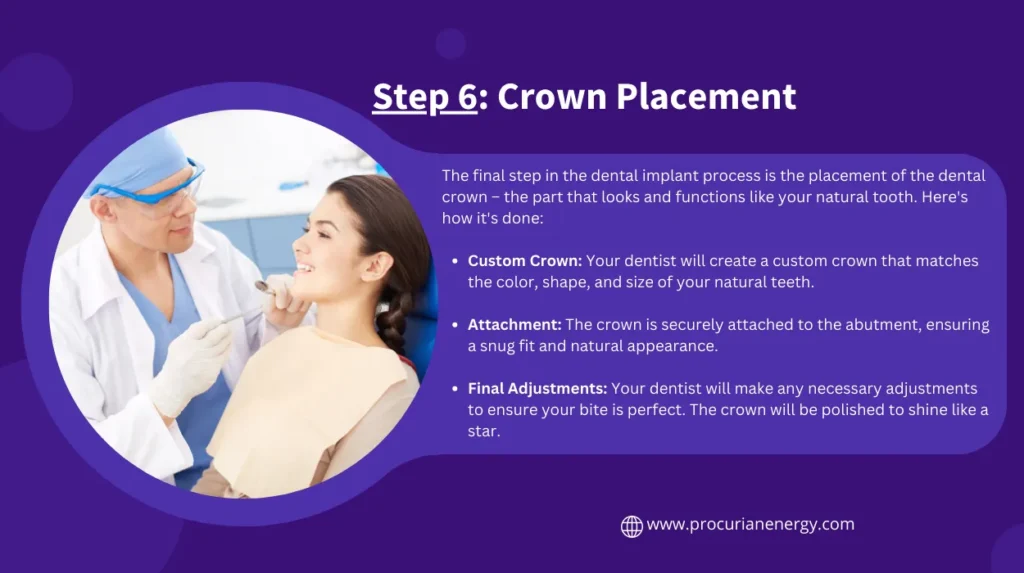
Now comes the fun part – getting your new tooth!
6.1 Impressions
Your dentist will take impressions of your teeth and the abutment to create a customized replacement tooth. This ensures a perfect fit and natural look.
6.2 Final Placement
Once your new tooth is ready, it’s securely attached to the abutment. Your dentist will make any necessary adjustments to ensure it fits comfortably and looks great.
Step 7: Aftercare and Maintenance
Duration: Lifetime
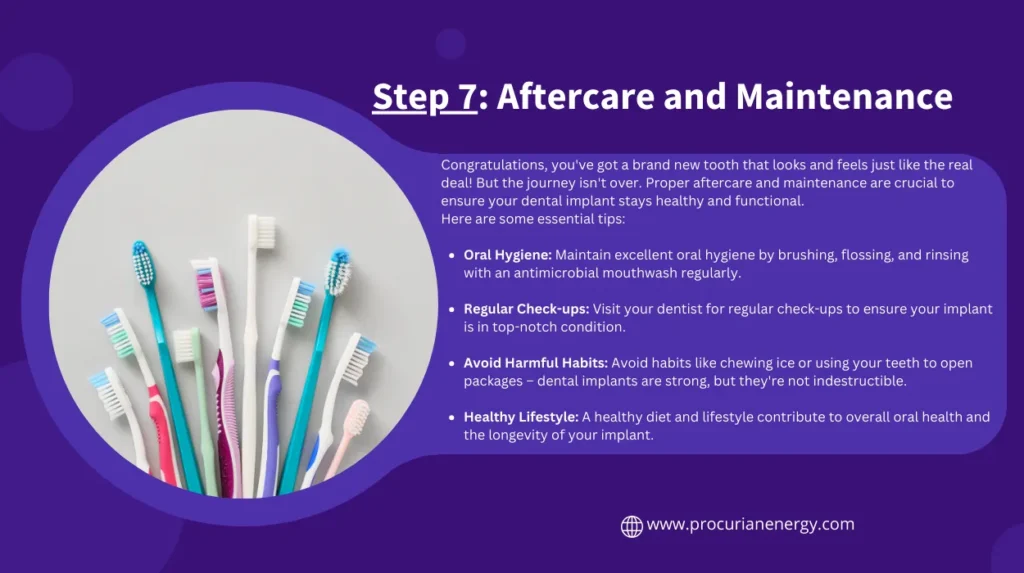
7.1 Oral Hygiene
Maintain excellent oral hygiene by brushing, flossing, and using an antimicrobial mouthwash. Regular dental check-ups are a must.
7.2 Diet
Avoid chewing hard or sticky foods that could damage your implant. Stick to a balanced diet to support overall oral health.
Here’s a simplified table summarizing the dental implant process:
| Step | Description |
|---|---|
| 1. Consultation | Evaluation and treatment plan |
| 2. Tooth Extraction (if needed) | Removing damaged teeth |
| 3. Implant Placement | Titanium implant placement and healing |
| 4. Healing and Osseointegration | Implant bonds with jawbone |
| 4. Abutment Placement | Attaching the abutment |
| 5. Customized Tooth(Crown) Replacement | Creating and placing the replacement tooth |
| 6. Aftercare | Oral hygiene and maintenance |
Note: If you’re not able to afford dental implant surgery, consider exploring options like dental implant grants. These programs may provide financial assistance or discounts to help cover the cost of the procedure. Even if you didn’t get approved for the grants, here are some insurance that covers Dental implants.
How long does a dental implant take from start to finish?
It takes around 7 to 9 months from the first visit to having your new tooth. It starts with an initial consultation and planning, then implant placement, and finally crown placement.
Related Article : 7 Best Alternatives to Dental Implants
What is the best age for dental implants?
The best age for dental implants is usually when a person’s jawbone has stopped growing, which is typically at the age of 18.
However, there’s no strict age limit, and dental implants can be done successfully at any age as long as the person is in good health and has enough bone in their jaw to support the implant.
How many sittings required for dental implants?
Generally, it takes about 3 to 5 sittings. The number of sittings needed for dental implants can vary according to patient’s condition and the treatment to be done.
How long do implants take to heal?
The healing time for implants is usually 4-6 months. Your jawbone needs time to fuse with the implant, making it strong and secure. After that, you can get the crown on top, and you’ll have a new tooth that feels just like the real thing.
What is the best pain relief after dental implants?
The best pain relief after dental implants is usually over-the-counter painkillers like ibuprofen or acetaminophen, as recommended by your dentist. These can help ease any discomfort you may feel.
How should I sleep after dental implant?
After getting a dental implant, it’s essential to sleep in a way that protects your new tooth. Here’s how:
- Elevate Your Head – Use an extra pillow or raise the head of your bed slightly to keep your head elevated. This helps reduce swelling and promotes better blood circulation.
- Sleep on Your Back – Try to sleep on your back rather than your side or stomach. Sleeping on your back puts less pressure on your implant and helps with healing.
- Avoid Putting Pressure – Be gentle with your implant area. Avoid putting pressure on it with your tongue or biting down on hard objects.
What not to do before and after a dental implant?
| Before Dental Implant | After Dental Implant |
|---|---|
| Don’t smoke or use tobacco products | Avoid smoking or using tobacco |
| Tell your dentist about all meds | Follow post-surgery instructions |
| Eat a balanced meal before surgery | Avoid hard or crunchy foods |
| Follow fasting instructions | Don’t skip post-op check-ups |
| Don’t drink alcohol excessively | Limit alcohol while healing |
| Avoid heavy exercise before surgery | Gentle activities after surgery |
FAQs
Does getting dental implants hurt?
How long do dental implants last?
Can anyone get dental implants?
Are dental implants expensive?
Final Words
And there you have it, folks, the dental implant process made simple. From the initial consultation to the final crown placement, each step is carefully planned to ensure your comfort and satisfaction.
Remember, each person’s experience may vary slightly, but this guide should give you a good idea of what to expect.
Keep in mind that maintaining your dental implants and enjoying a stunning smile for years to come require proper care and regular checkups. Do not hesitate to get in touch with your trusted dental professional if you have any additional queries or worries. Here is where your path to a self-assured smile begins!
